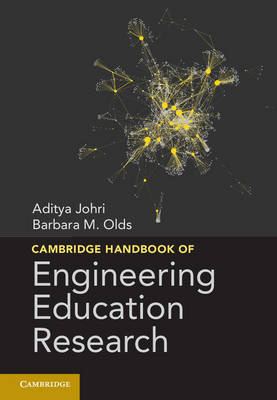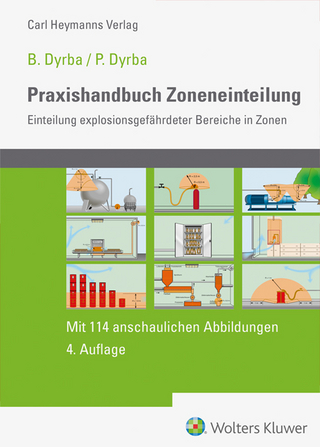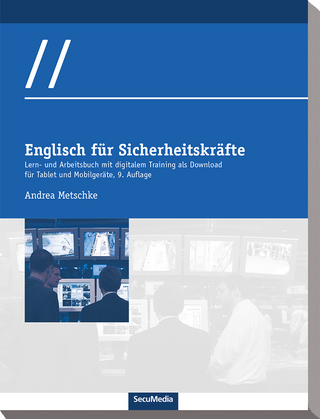
Cambridge Handbook of Engineering Education Research
Cambridge University Press (Verlag)
978-1-107-01410-7 (ISBN)
The Cambridge Handbook of Engineering Education Research is the critical reference source for the growing field of engineering education research, featuring the work of world luminaries writing to define and inform this emerging field. The Handbook draws extensively on contemporary research in the learning sciences, examining how technology affects learners and learning environments, and the role of social context in learning. Since a landmark issue of the Journal of Engineering Education (2005), in which senior scholars argued for a stronger theoretical and empirically driven agenda, engineering education has quickly emerged as a research-driven field increasing in both theoretical and empirical work drawing on many social science disciplines, disciplinary engineering knowledge, and computing. The Handbook is based on the research agenda from a series of interdisciplinary colloquia funded by the US National Science Foundation and published in the Journal of Engineering Education in October 2006.
Aditya Johri is an Assistant Professor of Engineering Education at Virginia Tech and Director of toolsLAB (Technology, Open Organizing and Learning Sciences Laboratory). His current projects focus on engineering learning, shifts in engineering work practices due to globalization and technology diffusion, and emergence of creativity in design practice. He was recently awarded the National Science Foundation Early Career Award and was a CASEE New Faculty Fellow (2008). He also received the Virginia Tech College of Engineering Dean's Award for Outstanding New Assistant Professor (2010). Barbara M. Olds is Senior Advisor in the Directorate for Education and Human Resources at the US National Science Foundation (NSF) and Professor Emerita of Liberal Arts and International Studies at the Colorado School of Mines, where she most recently served as Associate Provost for Educational Innovation. She served as the Director for the Division of Research, Evaluation, and Communication at NSF from 2003 to 2006. Olds is a fellow of the American Society for Engineering Education, where she has served in a number of capacities, including a term on the Board of Directors and as Chair of the International Advisory Committee. She was also a member of the Advisory Committee for the NSF's Office of International Science and Engineering and chaired the Committee of Visitors for that program in 2008. She was a Fulbright lecturer/researcher in Sweden in 1999.
Foreword; Introduction; 1. Chronological and ontological development of engineering education as a field of scientific inquiry Jeff Froyd and Jack Lohmann; 2. Learning theories for engineering education practice and research Wendy Newstetter and Marilla Svinicki; 3. Situative framework for engineering learning research Aditya Johri, Barbara M. Olds and Kevin O'Connor; 4. The social nature of representational engineering knowledge Wolff-Michael Roth; 5. Conceptual change and misconceptions in engineering education: curricular-, measurement-, and theoretically focused approaches Ruth Streveler, Shane Brown, Geoffrey Herman and Devlin Monfort; 6. Engineers as problem solvers David Jonassen; 7. Professional engineering work R. Stevens, Aditya Johri and Kevin O'Connor; 8. Problem-based and project-based learning in EE - merging models Anette Kolmos and Eric De Graaff; 9. Case studies in engineering Claire Davis and Aman Yadav; 10. Curriculum design in the middle years Susan Lord and John Chen; 11. Engineering design education Cindy Atman, Jim Borgford-Parnell, Janet McDonnell, Ozgur Eris and Monica Cardella; 12. Adaptive expertise and knowledge fluency in design and innovation Ann McKenna; 13. Learning disciplinary ideas and practices through engineering design Janet Kolodner and Kristen Wendell; 14. Engineering identity Karen Tonso; 15. Studying the career pathways of engineers: an illustration with two datasets Sheri Sheppard, Shannon Gilmartin, Samantha Brunhaver and Anthony Antonio; 16. Retention and persistence in engineering education Gary Lichtenstein, Helen Chen, Karl Smith and Theresa Maldonado; 17. Social justice and inclusion: women and minorities in engineering Donna Riley, Amy Slaton and Alice Pawley; 18. Community engagement in engineering education as a way to increase inclusiveness Chris Swan, Kurt Paterson and Angela Bielefeldt; 19. Translating research to widespread practice in engineering education Tom Litzinger and Lisa Lattuca; 20. Research-guided teaching practices: engineering threshold concepts as an approach to curriculum renewal Caroline Baillie and Sally Male; 21. Engineering instruction development: programs, best practices, and recommendations Rich Felder, Rebecca Brent and Michael Prince; 22. Understanding disciplinary cultures: the first step to cultural change Elizabeth Godfrey; 23. Preparing engineering educators for engineering education research Maura Borrego and Ruth Streveler; 24. Studying teaching and learning in undergraduate engineering programs: conceptual frameworks to guide research on practice Lisa Lattuca and Tom Litzinger; 25. Design-based research in engineering education: current steps and next steps Anthony E. Kelly; 26. Quantitative and mixed-methods research: approaches and limitations Barbara Moskal and Teri Reed-Rhoades; 27. Framing qualitative methods in engineering education research: established and emerging methodologies Jenni Case and Greg Light; 28. Conducting interpretive research in engineering education Aditya Johri; 29. The science and design of assessment in engineering education Jim Pellegrino, L. V. DiBello and Sean Brophy; 30. Engineering communication M. Paretti, L. McNair and J. Leydens; 31. Use of technology in engineering education K. Madhavan and E. Lindsay; 32. Global and international issues in engineering education A. Johri and B. Jesiek; 33. Engineering ethics B. Barry and J. Herkert; 34. The normative contents of engineering formation: engineering studies G. Downey; 35. Interdisciplinarity in engineering practice N. Nerssesian and W. Newstetter; Conclusion.
| Zusatzinfo | 46 Tables, unspecified; 7 Halftones, unspecified; 56 Line drawings, unspecified |
|---|---|
| Verlagsort | Cambridge |
| Sprache | englisch |
| Maße | 185 x 257 mm |
| Gewicht | 1590 g |
| Themenwelt | Technik |
| ISBN-10 | 1-107-01410-7 / 1107014107 |
| ISBN-13 | 978-1-107-01410-7 / 9781107014107 |
| Zustand | Neuware |
| Informationen gemäß Produktsicherheitsverordnung (GPSR) | |
| Haben Sie eine Frage zum Produkt? |
aus dem Bereich


